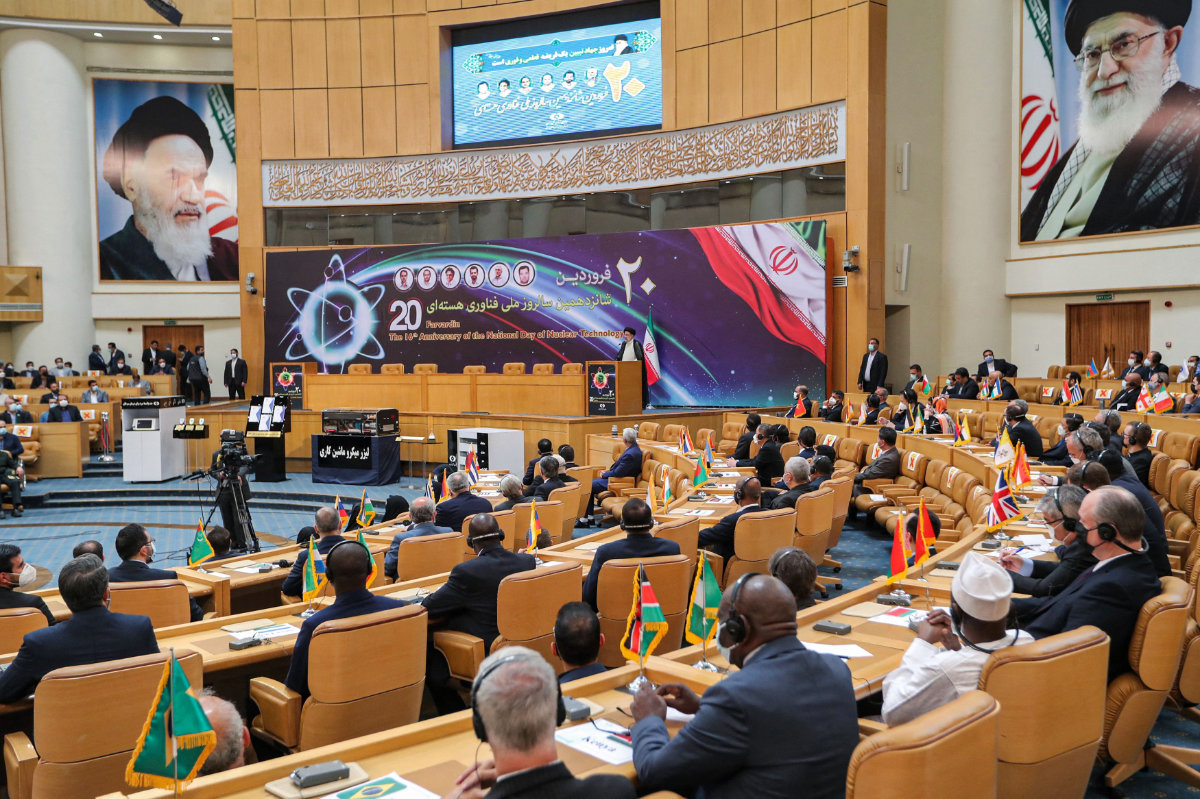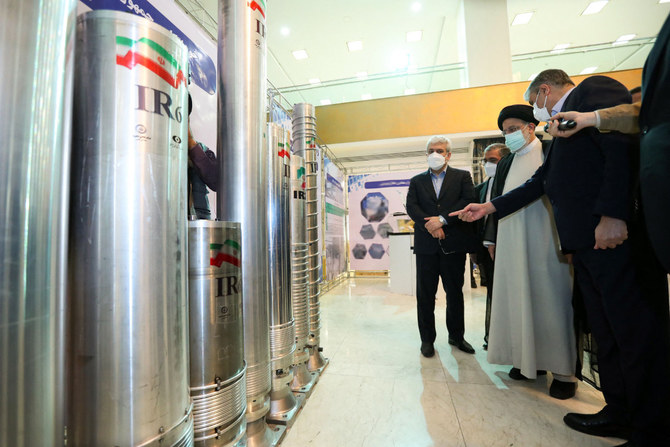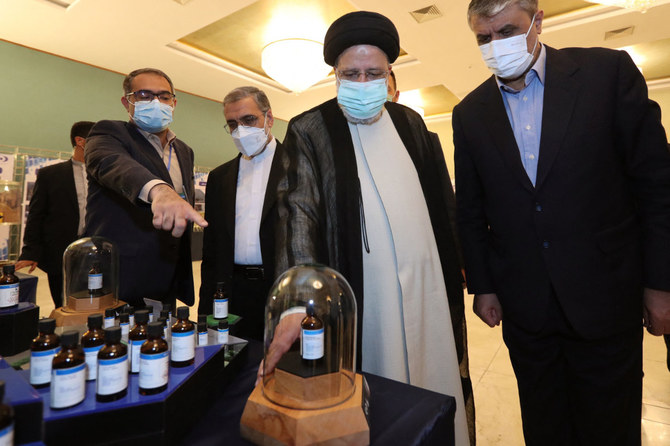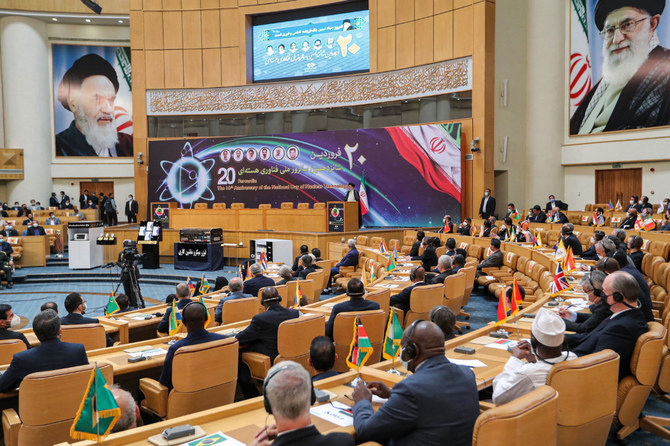JEDDAH: Iran’s Foreign Minister Hossein Amir-Abdollahian said on Sunday that Washington was “imposing new conditions” in the negotiations to restore the 2015 nuclear agreement.
“On the issue of lifting sanctions, they (the Americans) are interested in proposing and imposing new conditions outside the negotiations,” the minister said.
“In the last two or three weeks, the American side has made excessive demands that contradict some paragraphs of the text,” he added.

Iranian President Ebrahim Raisi speaks at an event during the "Nuclear Technology Day" in Tehran on April 9, 2022. (Iranian Presidency handout via AFP)
Iran has been engaged for a year in negotiations with France, Germany, Britain, Russia and China directly, and the US indirectly in Vienna to revive the deal, known formally as the Joint Comprehensive Plan of Action.
“The Americans keep talking about the need for direct negotiations, but we have not seen the benefit of direct talks with the United States,” Amir-Abdollahian said.
“We seek the lifting of sanctions, but with dignity and with a lasting agreement,” the foreign minister said, adding that “Iran has stood and will stand by its red lines.”
His remarks follow President Ebrahim Raisi’s earlier assertion that Tehran would not give up its right to develop its nuclear industry for peaceful purposes, and all parties involved in talks to revive the 2015 nuclear accord should respect this.
“For more than the one-hundredth time, our message from Tehran to Vienna is that we will not back off from the Iranian people’s nuclear rights ... not even an iota,” Raisi said on Saturday in a speech marking Iran’s Nuclear Technology Day.
Opinion
This section contains relevant reference points, placed in (Opinion field)
The US is considering removing Iran’s Islamic Revolutionary Guard Corps from its foreign terrorist organizations blacklist in return for Iranian assurances about reining in the elite force, Iranian and Western sources had told Reuters.
A senior administration official said President Joe Biden did not intend to remove the group from the terrorism designation, Washington Post columnist David Ignatius, who specializes in intelligence matters, reported on Friday.
Iranian state media reported that Iranian MPs had set conditions for the revival of the 2015 pact, including legal guarantees approved by the US Congress that Washington would not quit it.
“The United States should give legal guarantees, approved by its ... Congress, that it will not exit the pact again,” the semi-official Tasnim news agency quoted a statement signed by 250 MPs out of a total of 290.
The letter also said that under a revived pact the US should not be able to “use pretexts to trigger the snapback mechanism,” under which sanctions on Iran would be immediately reinstated.

















